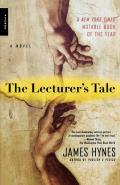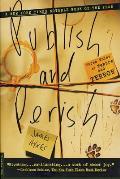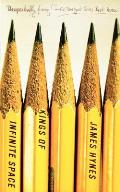
Literature is full of jerks. I'm not just talking about colorful villains or callous secondary characters — Iago, say, or
David Copperfield's feckless Steerforth — but central characters, point of view characters. Any list of the great fictional and dramatic protagonists of the canon will necessarily include a lot of unlikable, unpleasant, and downright awful people:
Oedipus,
Medea,
Macbeth,
Captain Ahab,
Humbert Humbert,
Tony Soprano. Even the ones who aren't murderers, pedophiles, or obsessives can still be deeply annoying:
Achilles sulks in his tent like a sullen teenager;
Hamlet spends the entire play dithering; Jane Austen's
Emma Woodhouse is a meddler and a know-it-all; self-righteous Dorothea Brooke of
Middlemarch ignores everybody else's advice and makes herself miserable;
Clarissa Dalloway is an awful snob. Even pop iconic heroes are no day at the beach.
Sherlock Holmes is a brilliant and strikingly virtuous man, but in real life, would you share a flat with a cocaine fiend who practices his target shooting in the parlor?
Obviously, I'm stacking the deck here. There must be protagonists who are both interesting and likable, and it probably says more about my dilettante nihilist view of human nature than it does about the history of literature that I can't think of very many of them at the moment. Huck Finn, I suppose, who is rough but enormously likable. Atticus Finch, I guess, but maybe I'm actually thinking of Gregory Peck. Dickens is full of likable people, or at least good ones, but it sort of proves my point that most of them aren't nearly as memorable as his more corrupt or compromised characters, like Fagin or Miss Havisham or Uriah Heep or Scrooge.
 This is all by way of saying that I'm always a little taken aback and (I'll admit it) a little defensive when readers of my books say that they find my protagonists "unlikable," like it's a bad thing. My usual response comes in one of two forms, which are mutually contradictory. The response I usually actually make is, "So what?" After which I proceed to make the same argument I've just made above: Is Macbeth likable? Is Ahab? Is Tony Soprano? (Well, actually, Tony sometimes is, but let's not complicate things.) Literary characters aren't necessarily meant to be role models, I argue, but truthful representations of lifelike people in all their warty glory. Not to mention that bad behavior is usually the hot little engine at the heart of every narrative. As Charles Baxter puts it, hell is story friendly. Who wants to read about Emma Bovary staying faithful to her husband?
This is all by way of saying that I'm always a little taken aback and (I'll admit it) a little defensive when readers of my books say that they find my protagonists "unlikable," like it's a bad thing. My usual response comes in one of two forms, which are mutually contradictory. The response I usually actually make is, "So what?" After which I proceed to make the same argument I've just made above: Is Macbeth likable? Is Ahab? Is Tony Soprano? (Well, actually, Tony sometimes is, but let's not complicate things.) Literary characters aren't necessarily meant to be role models, I argue, but truthful representations of lifelike people in all their warty glory. Not to mention that bad behavior is usually the hot little engine at the heart of every narrative. As Charles Baxter puts it, hell is story friendly. Who wants to read about Emma Bovary staying faithful to her husband?
My other response, though, which I usually keep to myself, is disappointment. The fact that I have spent more time in the company of my characters than anyone else ever will — novels take a long time to write, or at least, they take me a long time to write — means that, no matter how narcissistic, selfish, or even downright contemptible they turn out to be, I've gotten used to them over the course of a few years and probably see them through the rose-tinted glasses of a parent. In me, anyway, it seems that familiarity breeds a lack of contempt.
 Still, when I step back and regard my chief protagonists over the years with a more dispassionate gaze, I suppose I can see what people are talking about. Brian Donovan, the main character of my first novel, The Wild Colonial Boy, was a callow college drop-out who allowed himself to be drawn into an IRA bomb plot, while Paul Trilby, the hero (if that's the word) of one of the novellas in Publish and Perish, is a vainglorious academic who cheats on his wife and then drowns her cat in a bathtub. Nelson Humboldt, another foundering academic in The Lecturer's Tale, starts out as a loser, turns into a power-mad monster, and ends up a loser again. In Kings of Infinite Space, Paul Trilby returns to be haunted by the ghost of the cat he killed and to make a half-assed, last-minute stab at redemption — but even at the end of the book, he's still kind of a jerk.
Still, when I step back and regard my chief protagonists over the years with a more dispassionate gaze, I suppose I can see what people are talking about. Brian Donovan, the main character of my first novel, The Wild Colonial Boy, was a callow college drop-out who allowed himself to be drawn into an IRA bomb plot, while Paul Trilby, the hero (if that's the word) of one of the novellas in Publish and Perish, is a vainglorious academic who cheats on his wife and then drowns her cat in a bathtub. Nelson Humboldt, another foundering academic in The Lecturer's Tale, starts out as a loser, turns into a power-mad monster, and ends up a loser again. In Kings of Infinite Space, Paul Trilby returns to be haunted by the ghost of the cat he killed and to make a half-assed, last-minute stab at redemption — but even at the end of the book, he's still kind of a jerk.
In contrast to this rogue's gallery, Kevin Quinn, the protagonist of my new novel, Next, is the closest I've ever come to writing a likable, ordinary guy. He's not ambitious, he's not cruel or conniving or manipulative — in fact, if anything, he's a little weak, possibly a little passive aggressive, more inclined to let the wind blow him where it will than to lash out at the world for not recognizing his greatness. The entire novel takes place during a single day of his life — sort of like Mrs. Dalloway, only funnier — and is told entirely from his point of view, so no doubt he will also seem rather selfish and narcissistic. He's a guy at an important crossroads in his life, wandering a strange city (Austin, Texas) where he's come for a job interview, and I took that situation as license for Kevin to reconsider his history up to that point even as he experiences the sights and sounds (and subtropical heat) of Austin.
 If readers turn out not to like him much — and I suspect a lot of readers, and maybe even most of them, won't — all I can say in his defense is that, if you were to lift the top of any middle-aged man's skull and peer inside, you probably wouldn't like everything you see. In fact, I strongly suspect you could say the same about pretty much anybody, regardless of race, gender, or place of national origin. The uncensored human consciousness is not necessarily a pretty thing. I don't believe that people are fundamentally decent, but I also don't believe that people are fundamentally evil. People just are, and depending on his background, his mood, his situation, the barometric pressure, the phases of the moon, you name it, the same guy can be tender, heartless, lustful, chivalrous, craven, and noble, all in the same day, and who knows, maybe even at the same moment.
If readers turn out not to like him much — and I suspect a lot of readers, and maybe even most of them, won't — all I can say in his defense is that, if you were to lift the top of any middle-aged man's skull and peer inside, you probably wouldn't like everything you see. In fact, I strongly suspect you could say the same about pretty much anybody, regardless of race, gender, or place of national origin. The uncensored human consciousness is not necessarily a pretty thing. I don't believe that people are fundamentally decent, but I also don't believe that people are fundamentally evil. People just are, and depending on his background, his mood, his situation, the barometric pressure, the phases of the moon, you name it, the same guy can be tender, heartless, lustful, chivalrous, craven, and noble, all in the same day, and who knows, maybe even at the same moment.
One of my favorite pieces of advice for an artist comes not from another writer, but from that great American actor, Jimmy Cagney, whose own electric persona shone through every part he ever played, but who also played a wide range of characters, including some real assholes. One of the things I admire most about Cagney was that no matter what the movie was, or what character he was playing, from the irrepressibly charming George M. Cohan in Yankee Doodle Dandy to the irredeemably evil Cody Jarrett in White Heat, he gave it everything he had. Somebody asked him how he did it, and Cagney said, "You plant your feet, look the other fella in the eye, and tell the truth." Now, Kevin Quinn isn't quite the Irish charmer Cagney was, so I can't guarantee that you'll like him, or that you'll even like the book. But I can promise you that on every page of this book, with every sentence, with every word, I did my level best to follow Cagney's advice, and look the reader the in eye, and tell the truth.